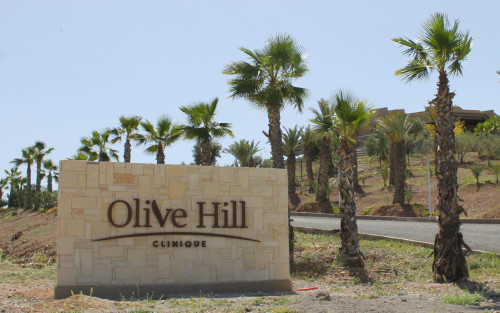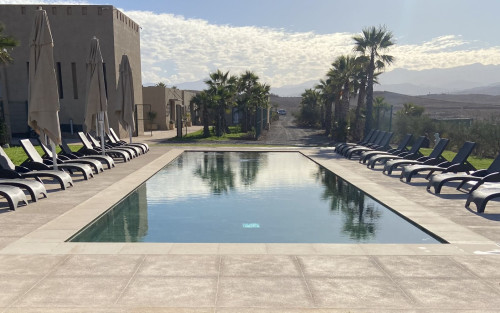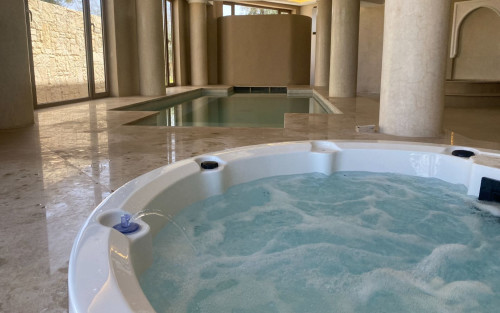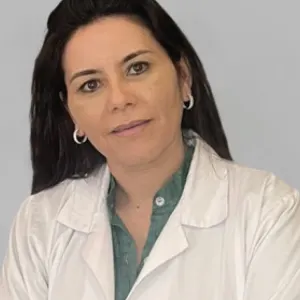






Olive Hill Clinique
Verified Center
This provider's information has been quality-checked by Recovery.com's Research Team for accuracy and completeness, including center verification through appropriate third-party organizations.
Treatment Focus
This center treats substance use disorders and co-occurring mental health conditions. Your treatment plan addresses each condition at once with personalized, compassionate care for comprehensive healing.
Primary Level of Care
Offering intensive care with 24/7 monitoring, residential treatment is typically 30 days and can cover multiple levels of care. Length can range from 14 to 90 days typically.
Treatment Focus
This center treats substance use disorders and co-occurring mental health conditions. Your treatment plan addresses each condition at once with personalized, compassionate care for comprehensive healing.
Primary Level of Care
Offering intensive care with 24/7 monitoring, residential treatment is typically 30 days and can cover multiple levels of care. Length can range from 14 to 90 days typically.
Private Pay
You pay directly for treatment out of pocket. This approach can offer enhanced privacy and flexibility, without involving insurance. Exact costs vary based on program and length of stay. Contact the center for specific details.
Olive Hill Clinique
Olive Hill Clinique
About Olive Hill Clinique
Please see below this text in French. // S'il vous plaît veuillez voir ci-dessous ce texte en français.
From its bespoke addiction facilities, Olive Hill Clinique aims to help patients heal from addictive behaviors and substance dependencies. In order to break the cycle of addiction, Olive Hill Clinique provides a holistic approach to treatment, offering internationally-validated, evidence-based therapeutic programmes to treat each patient individually. With the utmost respect for privacy and cultural differences, Olive Hill Clinique provides an oasis for healing and guarantees a journey to recovery tailored to the patient's personal circumstances. Olive Hill Clinique strives to achieve measurable Environmental, Social and Governance goals by applying a strict ESG policy to positively affect their environment, community, and patients.
Bespoke Treatment for Addiction and Co-Occurring Conditions
Olive Hill Clinique treats substance addictions and behavioral addictions like gambling, gaming, pornography, overworking, and internet addiction. An initial assessment guides treatment and tailors therapeutic modalities, including 12-Step facilitation, to each patient’s needs. Psychoeducation helps patients understand triggers, underlying causes of addiction, and self-help strategies for long-term recovery. Olive Hill Clinique prioritizes balanced and healthy nutrition as well, helping patients learn new dietary habits and mindful eating.
Experienced Professionals Leading Evidence-Based Care
Olive Hill Clinique’s team includes a pharmacist, psychiatrists, medical doctors, nursing staff, and psychotherapists. An experienced doctor leads detox in their designated medical unit. Their primary facility has 30 double bedrooms and private offices for group and 1:1 therapy. Olive Hill Clinique’s bespoke therapeutic programme uses several evidence-based therapies to address the core issues behind addiction and co-occurring conditions. These include cognitive behavioral therapy (CBT), motivational interviewing, dialectical behavioral therapy (DBT), eye movement desensitization and reprocessing (EMDR), and equine-assisted psychotherapy. They also provide repetitive transcranial magnetic stimulation (rTMS) and hypnotherapy as clinically appropriate. In addition, Olive Hill Clinique offers family therapy through a week of intensive interaction between patients and families, in-person or remotely.
Comprehensive Healing in a Tranquil Healing Environment
Olive Hill Clinique is nestled on a sprawling hill of natural beauty, spanning acres of olive groves, citrus trees and palm trees. Situated in Marrakech, Morocco, their secluded property enjoys breath-taking views of the enchanting Atlas Mountains and is just a 30-minute drive from Marrakech International Airport, a major hub with direct air links to most major cities in Europe, Africa, the Gulf and the Middle East. Clinique Olive Hill is equipped with 30 spacious rooms, offering amenities and modern comforts, including a medical spa, beauty salon, infinity pool, fully equipped fitness center, yoga and pilates studio, vegetable garden, outdoors sports field, and a convenience shop. Patients can also enjoy an art and music room, café and library, theater and conference room, and an indoor and outdoor organic restaurant. After the treatment program, patients leave with a personalized aftercare plan that includes continued therapeutic sessions in a virtual or in-person setting. Patients can also attend week-long programmes to strengthen the recovery of alumni.
En Français:
Avec son centre d'excellence dédié au traitement des addictions, la mission de Olive Hill Clinique est d’aider les patients à guérir de comportements addictifs et de dépendances diverses aux substances. Afin de briser le cycle de la dépendance, Olive Hill Clinique propose une approche holistique de traitement, en offrant des programmes thérapeutiques validés au niveau international et fondés sur les modèles «evidence-based», afin de traiter chaque patient individuellement. Dans le plus grand respect de la vie privée et des différences culturelles, Olive Hill Clinique offre un havre de paix pour le rétablissement, et garantit systématiquement un parcours de prise en charge adapté à la situation personnelle du patient. Enfin, Olive Hill Clinique s’efforce d’atteindre des objectifs environnementaux, sociaux et de gouvernance mesurables en appliquant une politique ESG stricte afin d'avoir un impact positif sur l'environnement, ainsi que sa communauté et ses patients.
Traitement thérapeutique individualisé de la dépendance et de pathologies concomitantes
Olive Hill Clinique traite les dépendances aux substances et les comportement addictifs telles que les jeux de hasard, les jeux vidéo, la pornographie, le surmenage et la dépendance à Internet. Une évaluation initiale guide le traitement et adapte les modalités thérapeutiques (y compris la facilitation des programmes à 12 étapes) aux besoins de chaque patient. La psychoéducation aide les patients à comprendre les déclencheurs, les causes sous-jacentes de la dépendance et les stratégies d’auto-assistance pour un rétablissement à long terme. Olive Hill Clinique priorise également une alimentation équilibrée et saine, en aidant ses patients à acquérir de nouvelles habitudes alimentaires et à manger de manière consciente.
Une équipe de professionnels expérimentés dirigeant des thérapies fondés sur les modèles «evidence-based»
L’équipe Olive Hill Clinique comprend un pharmacien, des psychiatres et psychologues cliniciens résidents, des médecins, du personnel infirmier et des psychothérapeutes. Un médecin expérimenté dirige la désintoxication de certaines substances dans l’unité médicale de pointe de la Clinique. L’établissement comprend 30 chambres simples et doubles et des bureaux privés pour les thérapies individuelles et thérapies de groupe. Le programme thérapeutique individualisé repose sur plusieurs modèles thérapeutiques «evidence-based» afin de résoudre les problèmes fondamentaux liés à la dépendance et aux pathologies concomitantes. Il s’agit notamment de la thérapie cognitivo-comportementale (TCC), de l'entretien motivationnel, de la thérapie comportementale dialectique (TCD), de la désensibilisation et retraitement par les mouvements oculaires (EMDR) et de la psychothérapie équine. La clinique propose également, lorsque cela est adapté, également la stimulation magnétique transcrânienne répétitive (rTMS), et l’hypnothérapie, en fonction des besoins individuels et cliniques. Olive Hill Clinique propose aussi une interaction structurée d'une semaine avec les familles des patients (en personne ou à distance) pour les thérapies familiales.
Guérison globale dans un environnement propice au rétablissement
Olive Hill Clinique est nichée sur une vaste colline d’une grande beauté naturelle, s’étendant sur des hectares d’oliviers, d’agrumes et de palmiers. Située à Marrakech, au Maroc, la propriété offre une vue imprenable sur les magnifiques montagnes de l’Atlas et se trouve à seulement 30 minutes en voiture de l’aéroport international de Marrakech, une plaque tournante majeure avec des liaisons aériennes directes vers la plupart des grandes villes d’Europe, d’Afrique et du Golfe et du Moyen-Orient.
Olive Hill Clinique est équipée de 30 chambres spacieuses, offrant les équipements et conforts modernes, y compris un spa médical, un salon de beauté, une piscine à débordement, un centre de fitness tout équipé, un studio de yoga et de pilates, un potager, un terrain de sport extérieur et un dépanneur. Les patients peuvent également profiter d’une salle d’art et de musique, d’un café et d’une bibliothèque, d’un théâtre et d’une salle de conférence, ainsi que d’un restaurant panoramique intérieur et extérieur. Après leur période de traitement au sein de la clinique, les patients repartent avec un plan de suivi personnalisé qui comprend des séances thérapeutiques continues à distance ou en personne. Les patients peuvent aussi participer à des programmes d’une semaine pour renforcer le rétablissement des anciens participants du programme.
Highlights from the Center
Highlights
These highlights are provided by and paid for by the center.
Therapeutic Location
Customized Treatment Plans
On-site Spa
Addiction Recovery
Center Overview
Treatment Focus
This center treats substance use disorders and co-occurring mental health conditions. Your treatment plan addresses each condition at once with personalized, compassionate care for comprehensive healing.
Pricing and Program Length
Estimated Center Costs
The cost listed here (€30,000/month), is an estimate of program cost. Center price can vary based on program and length of stay. Contact the center for more information. Recovery.com strives for price transparency so you can make an informed decision.
Luxury rehab centers offer a unique blend of luxurious amenities and high-quality treatment. From private suites to gourmet dining, personal trainers to spa treatments, these facilities provide a high level of comfort and discretion.

Meet Your Care Team

Rachid Amani
Clinical Director
Doctorate in Medicine, Master´s Degree - Healthcare Quality & Safety

Massimo Riccio
Program Director
Qualified - Royal College of Psychiatrists (London, UK)

Yves Jomini
Chief Psychotherapist
Master´s of Science & University Diploma (DU) in Family Clinical Psychology and Systemic Therapy

Dr. Kenza Mansouri
Clinical Pharmacist
Degree in Medicine & Pharmacy

Dr. Meriam Rabitat Eddine
Psychiatrist
Doctorate in Medicine, Residency in Psychiatry, Diplomas in Addictology, CBT, & Trial-Based Cognitive Therapy




Levels of Care






Your Care Options
Specializations
Alcohol
Using alcohol as a coping mechanism, or drinking excessively throughout the week, signals an alcohol use disorder.
Detox
Detox fully and safely removes toxic substances from the body, allowing the next steps in treatment to begin with a clean slate.
Drug Addiction
Drug addiction is the excessive and repetitive use of substances, despite harmful consequences to a person's life, health, and relationships.
Gambling
Excessive, repetitive gambling causes financial and interpersonal problems. This addiction can interfere with work, friendships, and familial relationships.
Opioids
Opioids produce pain-relief and euphoria, which can lead to addiction. This class of drugs includes prescribed medication and the illegal drug heroin.
Prescription Drugs
It's possible to abuse any drug, even prescribed ones. If you crave a medication, or regularly take it more than directed, you may have an addiction.
Who We Treat
Older Adults
Addiction and mental health treatment caters to adults 55+ and the age-specific challenges that can come with recovery, wellness, and overall happiness.
Executives
Executive treatment programs typically directly support the needs of people who manage businesses and may provide flexible schedules and office space to allow work during treatment.
Young Adults
Emerging adults ages 18-25 receive treatment catered to the unique challenges of early adulthood, like college, risky behaviors, and vocational struggles.
LGBTQ+
Addiction and mental illnesses in the LGBTQ+ community must be treated with an affirming, safe, and relevant approach, which many centers provide.
Men and Women
Men and women attend treatment for addiction in a co-ed setting, going to therapy groups together to share experiences, struggles, and successes.
Midlife Adults
For adults ages 40+, treatment shifts to focus on the unique challenges, blocks, and risk factors of their age group, and unites peers in a similar community.
Mild Disabilities
Adults with mild physical or intellectual disabilities receive treatment catered to their specific needs in a safe and clinically supportive environment.
Approaches
Evidence-Based
A combination of scientifically rooted therapies and treatments make up evidence-based care, defined by their measured and proven results.
Family Involvement
Providers involve family in the treatment of their loved one through family therapy, visits, or both–because addiction is a family disease.
Twelve Step
Incorporating spirituality, community, and responsibility, 12-Step philosophies prioritize the guidance of a Higher Power and a continuation of 12-Step practices.
Wellness
Wellness philosophies focus on the physical, mental, and spiritual wellness of each patient, helping them restore purpose with natural remedies.
Therapies
1-on-1 Counseling
Patient and therapist meet 1-on-1 to work through difficult emotions and behavioral challenges in a personal, private setting.
Meditation & Mindfulness
A practiced state of mind that brings patients to the present. It allows them to become fully aware of themselves, their feelings, and the present moment.
Cryotherapy
Stepping into a chamber of extreme cold floods the bloodstream with nutrients and endorphins, helping reduce withdrawal symptoms and cravings.
Transcranial Magnetic Stimulation
Localized magnetic pulses stimulate areas of the brain to increase brain activity and reduce abnormal functions.
Mindfulness Therapy
This ancient practice can be mental, emotional, and even spiritual. In meditation, you focus your attention on the present moment without judgement.
Adventure Therapy
This experiential approach uses the physical and emotional challenges of outdoor activities as tools for personal growth.
Attachment-Based Family Therapy
ABFT is a trauma-focused therapy that teaches you to form healthy relationships by rebuilding trust and healing attachment issues formed in childhood.
Animal Therapy
Animals can inspire trust and self-worth. In this experiential therapy, guided interactions are used to improve social skills and emotion regulation.
Conditions We Treat
Pornography Addiction
A person with a porn addiction is emotionally dependent on pornography to the point that it interferes with their daily life and relationships.
Codependency
Codependency is a pattern of emotional dependence and controlling behavior. It's most common among people with addicted loved ones.
Gambling
Excessive, repetitive gambling causes financial and interpersonal problems. This addiction can interfere with work, friendships, and familial relationships.
Gaming
Compulsive gaming is most often a problem for children and teens. The disorder can affect physical health, sleep, and the ability to focus at school.
Internet Addiction
Internet addiction is common among children teens. This compulsive disorder can damage relationships, school performance, sleep habits, and physical health.
Sex Addiction
Compulsively seeking out sex can easily become a problem. This addiction is detrimental to relationships, physical health, and self-esteem.
Shopping Addiction
Excessive shopping and spending also known as compulsive buying disorder makes life unsustainable. It puts a strain on finances, relationships, and emotional well-being.
Substances We Treat
Alcohol
Using alcohol as a coping mechanism, or drinking excessively throughout the week, signals an alcohol use disorder.
Benzodiazepines
Benzodiazepines are prescribed to treat anxiety and sleep issues. They are highly habit forming, and their abuse can cause mood changes and poor judgement.
Co-Occurring Disorders
A person with multiple mental health diagnoses, such as addiction and depression, has co-occurring disorders also called dual diagnosis.
Cocaine
Cocaine is a stimulant with euphoric effects. Agitation, muscle ticks, psychosis, and heart issues are common symptoms of cocaine abuse.
Drug Addiction
Drug addiction is the excessive and repetitive use of substances, despite harmful consequences to a person's life, health, and relationships.
Ecstasy
Ecstasy is a stimulant that causes intense euphoria and heightened awareness. Abuse of this drug can trigger depression, insomnia, and memory problems.
Heroin
Heroin is a highly addictive and illegal opioid. It can cause insomnia, collapsed veins, heart issues, and additional mental health issues.
Psychedelics
Hallucinogenic drugs—like LSD—cause euphoria and increased sensory experiences. When abused, they can lead to depression and psychosis.
Languages
Aftercare
Care Designed for Your Needs
Personal Amenities
Amenities
Special Considerations
Pet Friendly
For greater comfort and healing, pet-friendly treatment centers welcome dogs and animal companions to stay with their owners while they attend treatment.
Gender-specific groups
Patients in gender-specific groups gain the opportunity to discuss challenges unique to their gender in a comfortable, safe setting conducive to healing.
Activities
Yoga
Yoga is both a physical and spiritual practice. It includes a flow of movement, breathing techniques, and meditation.






